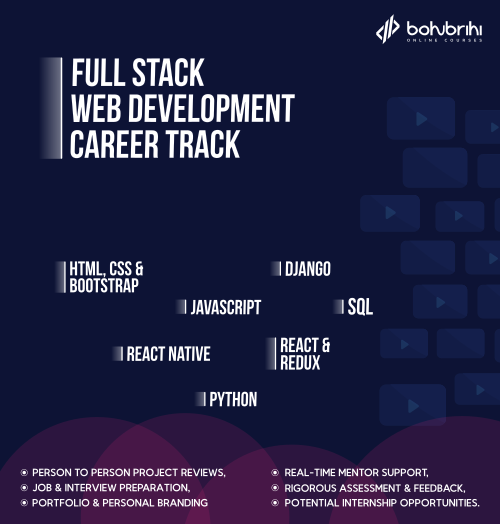
Internet penetration has doubled in Bangladesh over the last five years with an average 13.5% annual growth — some 67% of the country's total population now use the internet. While Bangladesh lags behind its Asia Pacific peers in smartphone usage, the smartphone penetration has seen consistent growth with 41% of total mobile phone users having smartphones.
We can already see some of the changes in the market caused by increased internet and smartphone penetration in growth in a myriad of digital services. Services like online grocery, general-purpose ecommerce, services online, food delivery, etc have been seeing growing adoption in urban centers across the country. The coronavirus pandemic has accelerated that pace.
Online education has slowly been gaining momentum in Bangladesh — a growing number of entrepreneurs are looking to use tech and the internet to take education online. The coronavirus pandemic has accelerated this pace. EdTech startups have been receiving increased attention from both users and investors since the beginning of the coronavirus pandemic — at least three local education technology startups raised investments of different sizes in the past several months. As I mentioned before the shift has already been underway even before the pandemic. There has been a change in people’s perception of online education. We have also seen an influx in the number of ed-tech startups in Dhaka. Especially during the lockdown due to the COVID-19 pandemic, a surge in the demand for online education has significantly made an impact on the edtech industry. We have seen an influx of ed-tech startups of late. Last year six Bangladeshi startups — 10 Minute School, Bohubrihi, Shikho, Thrive EdTech, Durbin Academy, and Upskill — made it to HolonIQ India & South Asia EdTech 100 list.
As the vertical sees increased attention, we take notes, and here is a list 7 Bangladeshi edtech startups we are following:
1. 10 Minute School
Ayman Sadiq, an IBA graduate, founded 10 Minute School in 2015 which is considered as one of the pioneers of online education in Bangladesh and currently is the largest online education platform of Bangladesh offering a diverse set of courses and contents from K12 to university admissions to language learning to skills developments.
Ayman Sadiq started 10 Minute School as a YouTube channel in mid-2014. Ayman noticed the topics students have to study for the IBA entrance exam are also useful for private university admission tests, SAT, GRE, GMAT, and job exams. Hence he decided to open a YouTube channel to teach these topics. The response from the audience was great, which eventually led to the idea of launching a dedicated online learning platform. Thus, on May 17, 2015, the website of 10 Minute School was officially born. The rest of it is a story of rapid growth and expansion across multiple categories of online learning. Today, 10 Minutes School is a go-to-place for a wide range of courses and education products including the full syllabus of classes 1-12, university admission test, IELTS, GRE, interpersonal skills, etc. The company has also delved into paid courses of late on skill development and various other issues.

2. Bohubrihi
Founded in 2016 by Yanur Islam Piash and Galib Hassan Khan, two alumnae of BUET, Bohubrihi is one of the popular e-learning platforms in Bangladesh. According to Yanur Islam Piash, the inadequacy of quality online courses in Bangla, especially on advanced technical and engineering topics encouraged them to build an e-learning platform where quality course content on various skills will be in Bangla. Today, Bohubrihi offers a wide range of courses on a diverse set of skills.
In 2020, Bohubrihi launched its ‘Career Track Program’ to help the learners to be experts in a particular field by providing them training and complete guidance. Bohubrihi aims to provide their learners a more humanized experience with full-time mentor support, live discussions with the instructors, grooming sessions, counseling for job-hunting to even probable internship placements with partner companies, and personal feedback on every project done by the individual participants.
Read our coverage of Bohubrihi here.
3. Shikho
Shikho is one of the new startups in the edtech industry which aims to provide a holistic learning experience for students of class 9 & 10. Shikho started its journey on April 1, 2019. Tahiya Chowdhury, the head of HR and Communication of Shikho told The Business Standard, “Shikho is an intersection between three elements - academic expertise, creative design, and technology.”
Shikho launched ‘Shikho-The Learning App’ in October 2020. To exchange the user experience Shikho has gamified the learning process. As per TBS, the app is getting significant traction since its launching. Though Shikho still has a long way to go, it can surely be stated that Shikho is one of the edtech startups we should watch out for.
Read our coverage of Shikho here.
3. Durbin Academy
Durbin Academy is an edtech startup that provides video tutorials for students from classes 5-12. Besides, they also provide learning material for BCS preparation and private tutors.
Students can download the ‘Durbin Academy’ app from the google play store. More than 1500 tutorial videos are available on this platform. Students can take MCQ and comprehension exams to evaluate themselves.
Moreover, the platform has features like online forums, quiz contests, to help the learners to communicate with other learners on the platform and build confidence. So far more than 100k students have learned from this platform and the number is growing promisingly.
4. Thrive EdTech
Thrive is a Dhaka-based ed-tech startup that aims to personalize education in classrooms in Bangladesh. In conventional curriculum, many students struggle because of having a limited number of ‘good teachers’. Besides, it is usually hard for a teacher to focus on individual students because of the large number of students in a classroom. As a result, many students fall behind. Thrive aspires to solve this challenge using technology and design.
“We believe that education needs to be personal and adaptive for students, assistive and insightful for educators, and efficient and automatic for admins,” said Proggo Pratik, the chief product officer of Thrive In an interview with The Daily Star.
Read our coverage of Thrive here.
5. UpSkill
UpSkill is a skill-sharing platform that is working to close the skill gap between the job candidates and industries, specifically on the technical vertical. Learners can get access to all of the video lessons on Upskill platform for only tk. 3000/year. Besides, they can also register for workshops conducted by industry experts to learn new skills.
UpSkill is the first online edtech to sign an Income-Sharing Agreement (ISA) to place talent in the partner organization. UpSkill has signed an ISA with Chaldal and plans to sign ISA with two other companies, as per The Daily Star.
So far UpSkill has raised approximately $200k in funding. Mustafiz Rahman Khan, one of the co-founders of UpSkill, told The Daily Star, “We intend to disrupt the local Edtech vertical with the backing of strong founders and investors who believe that the path to Bangladesh's growth is through unlocking the potential of our large educated base who are either underemployed or unemployed...With 2 years of business and customer data, we believe that we have great insights to innovate through our learning platform to create the biggest social impact in Bangladesh.”
7. Ostad
Launched in 2020 by a group of friends from KUET, Ostad aims to create a skilled workforce by making online education accessible to everyone. Compared to other ed-tech startups featured in this list, Ostad offers live courses instead of recorded courses and students can interact with teachers in real-time during the class.
Being fascinated by the rise of the sharing economy, the founders of Ostad decided to work on skill sharing and create a platform where people will be able to share their skills and students can find tutors for the skills they want to learn. The company initially launched several offline training programs but eventually moved to online learning as the coronavirus pandemic hit in early 2020.
The first online course on Ostad was on IELTS preparation. Gradually, with the number of learners and instructors, the number of topics and course contents has also increased.
Over the past months, Ostad has seen excellent growth and continues to launch new features and courses.
Read our coverage of Ostad here.
Note: This is no ranking. The startups are organized in no particular order. And this list is not complete. If you know an edtech startup we missed to include in the list, please do let us know at info@futurestartup.com.
Ruhul Kader contributed to this article.
